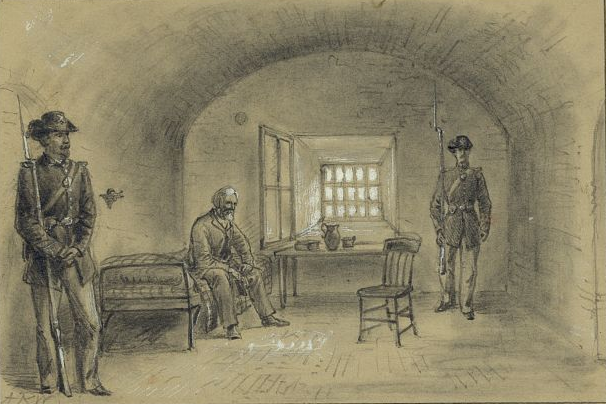
Following the War Between the States (1861-65), Jefferson Davis, President of the defeated Confederate States of America, was imprisoned with a view to his being tried for treason on account of his leadership role in the South’s effort to make of itself an independent nation. Two years later, however, he was released and went into exile in Montreal (in Catholic Quebec) and then wandered in Europe before returning to these shores to spend his final days in his home state of Mississippi. His release came after a finding by the Chief Justice of the United States Supreme Court, Salmon P. Chase, that there was nothing in the U.S. Constitution that prohibited the secession of states. If secession was not illegal, neither Davis nor any other Confederate leaders could be guilty of treason.My Children, Father, Thy forgiveness need;
Alas! their hearts have only place for tears!
Forgive them, Father, ev’ry wrongful deed,
And every sin of those four bloody years;
And give them strength to bear their boundless loss,
And from their hearts take every thought of hate;
And while they climb their Calvary with their Cross,
Oh! help them, Father, to endure its weight.
— from The Prayer of the South
The treatment endured in prison by Davis — a gentleman, a hero of the Mexican War, one-time son-in-law of a U.S. President (Zachary Taylor), a U.S. Secretary of War and U.S. Senator from Mississippi prior to becoming President of the C.S.A. — ill bespoke those who imprisoned him. It was clearly calculated to break him as a man. For instance, guards were posted around the clock inside his cell in order to deprive him of all privacy, including even at the times every day when nature required that he take care of the most private needs of all.
More @ Catholicism
**********************


No comments:
Post a Comment